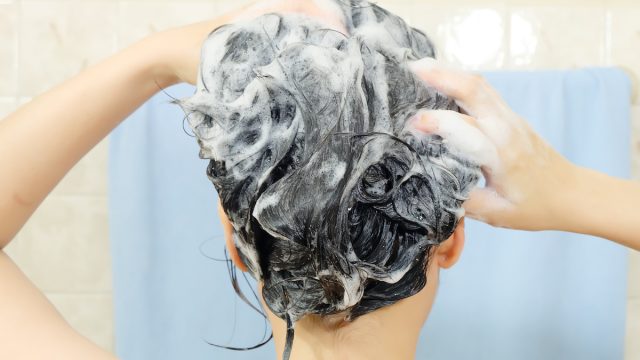How Often You Should Wash Your Gray Hair, According to Experts
Hint: It's less frequently than you think.
There's one beauty question that's almost always on our minds: how often should I wash my hair? Some experts seem to suggest sudsing up every day, while others recommend waiting as long as you can between washes. Of course, this guidance changes depending on your hair type, too. If you've got fine strands, you may need to wash them frequently. If your hair is thick or textured, you can likely go longer between washes. As you age, there's also the challenge of gray hair, which has different needs than fully pigmented locks. But the confusion ends here. Ahead, hairstylists tell us exactly how often to wash gray hair, as well as the other treatments and haircare steps you'll want to take to keep it in top shape.
READ THIS NEXT: 5 Secrets for Growing Out Gray Hair, According to Stylists.
What makes gray hair different from pigmented hair?

To understand how your wash schedule should change once your hair turns gray, it's important to know what makes gray hair different from fully pigmented strands in the first place. According to Jamie Mazzei, creative director for NuBest Salon & Spa in New York, melanin is what gives our hair color. As melanin production stops, our hair starts to turn gray. "This is not because our hair structure has changed, however," Mazzei says. "When our hair stops producing melanin, our production of sebum slows as well." Because sebum is the natural oil that hydrates our hair, gray strands can feel drier and wirier than naturally colored hair.
Gray hair's lack of pigment also leaves it vulnerable to the elements such as pollution, hard water, UV rays, and chemicals. These things can cause it to become faded or yellow over time, which means your gray hair may require extra care in the color-maintenance department, too.
READ THIS NEXT: If You're Letting Your Hair Go Gray, Do This First, Experts Say.
Wash gray hair this many times a week.
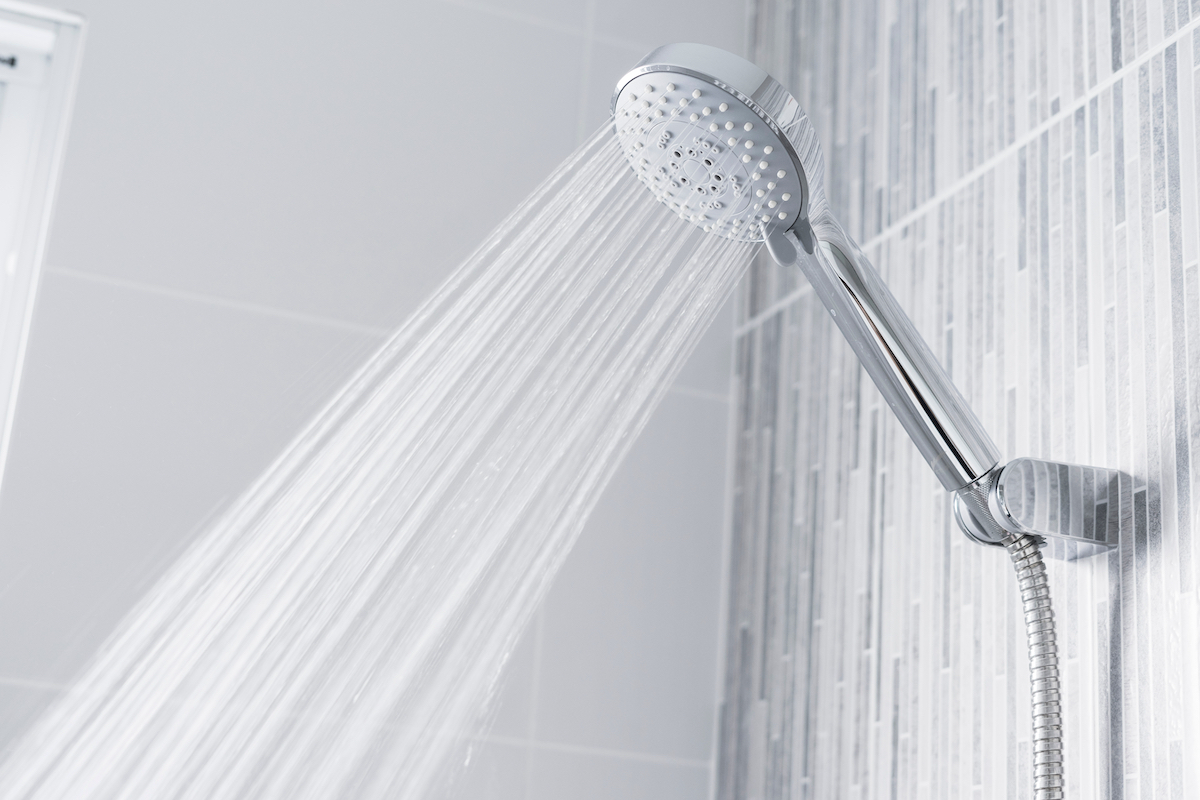
As we mentioned, gray hair's lack of sebum can make it feel dry. To reduce further dryness, you'll want to wash it as infrequently as possible. "Washing every other day or three to four times a week can help with this," says Mazzei. "By washing less often, you give the natural oils a chance to do their job." Each time you wash your hair, use conditioner. Once a week, use a clarifying shampoo. "This will get rid of dulling minerals and keep your gray hair sparkling," Mazzei adds.
Use toner at this frequency.
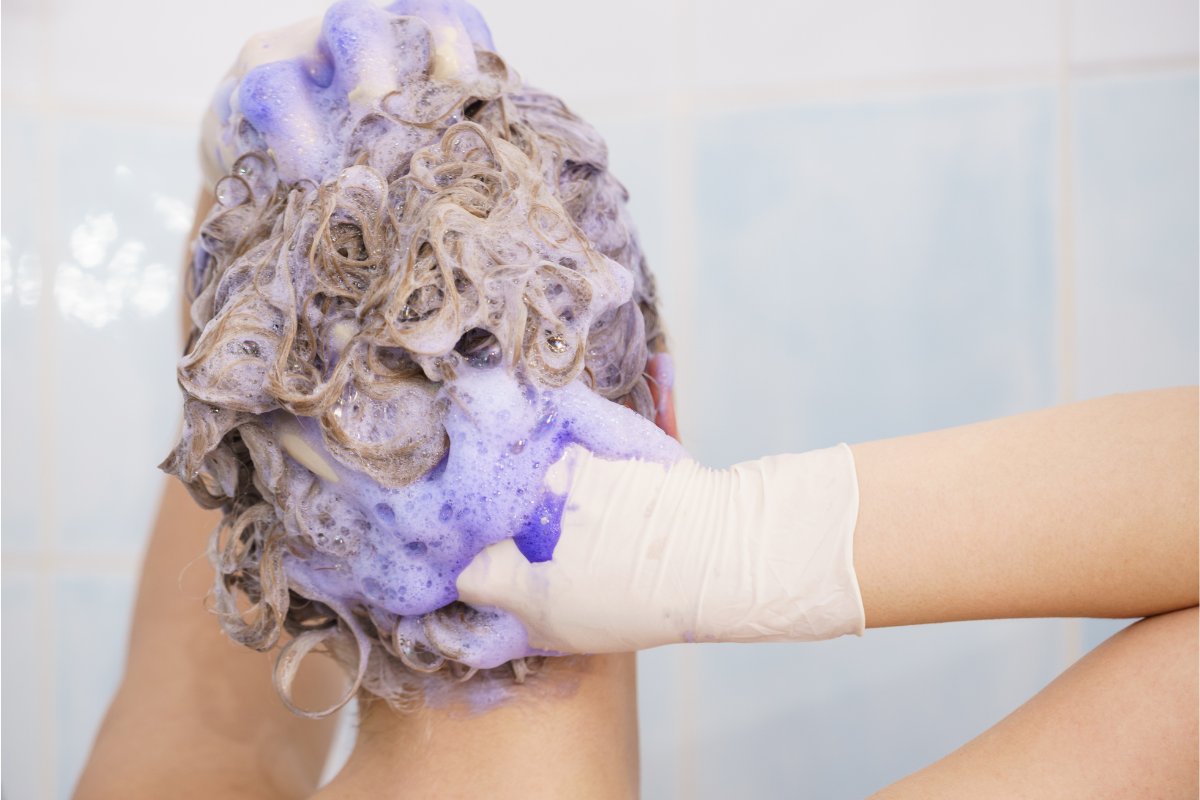
Gray hair can turn yellow for a range of reasons. And if you notice that in your own locks, purple toner is your secret weapon. "Toner can help to brighten up faded hair color and make grays look more consistent with the rest of your hair," says Lauren Ubore, hair stylist and consultant for Wig Reports. "I recommend using toner once a week if you have gray hair." You can choose a toning shampoo, conditioner, mask, leave-in drops, or balm. Chat with your stylist to find the formula that will work best for your strands.
For more beauty advice delivered straight to your inbox, sign up for our daily newsletter.
Add a mask once a week.
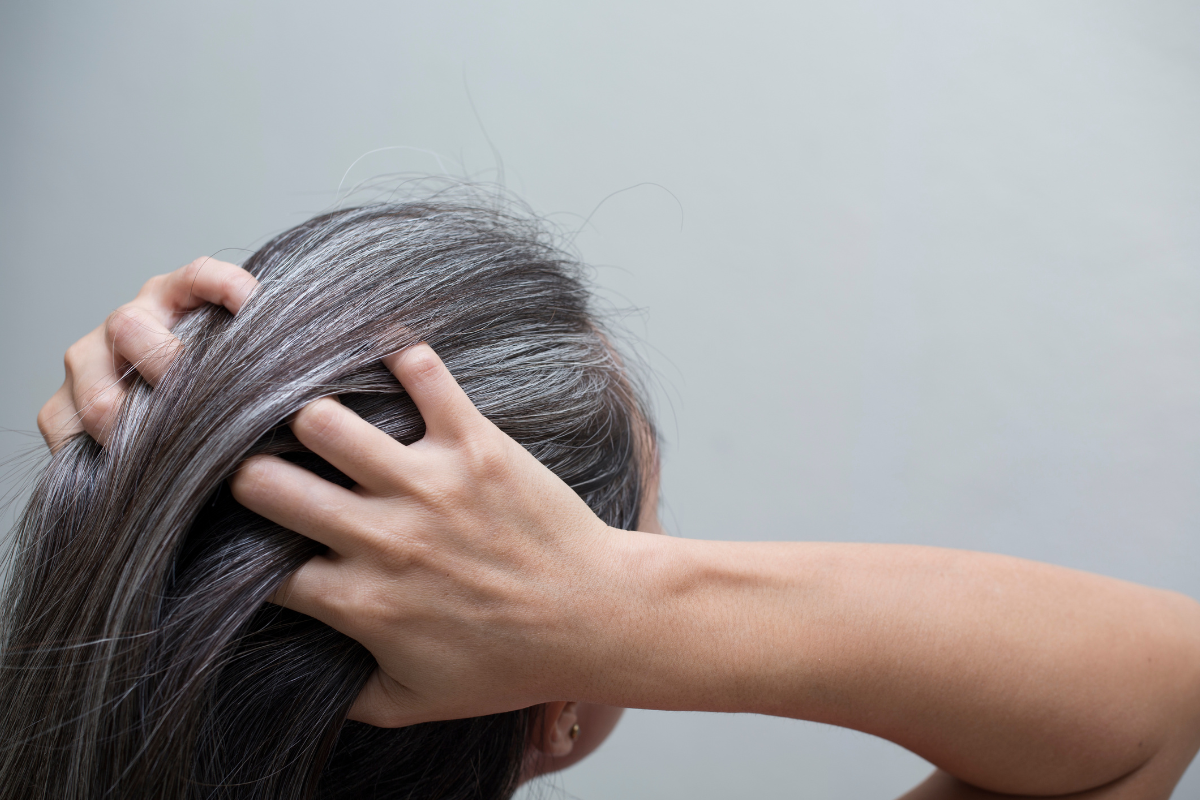
Want to fight frizz and dryness? Add a hydrating hair mask to your routine once a week, advises Ghanima Abdullah, hair expert and cosmetologist at The Right Hairstyles. "Why all the hydration? What we forget is that frizz is really just dry hair that's standing up looking for moisture from the environment," says Abdullah. "So once your hair is hydrated, your gray hairs won't be standing up arguing so much."
To do two jobs at once, choose a mask that layers in a toner. Abdullah recommends the Christophe Robin Shade Variation Hair Mask for Baby Blonde. "It will keep your gray hairs a nice silver color with no yellow tint." What more could you want?
Let your hair be as often as possible.
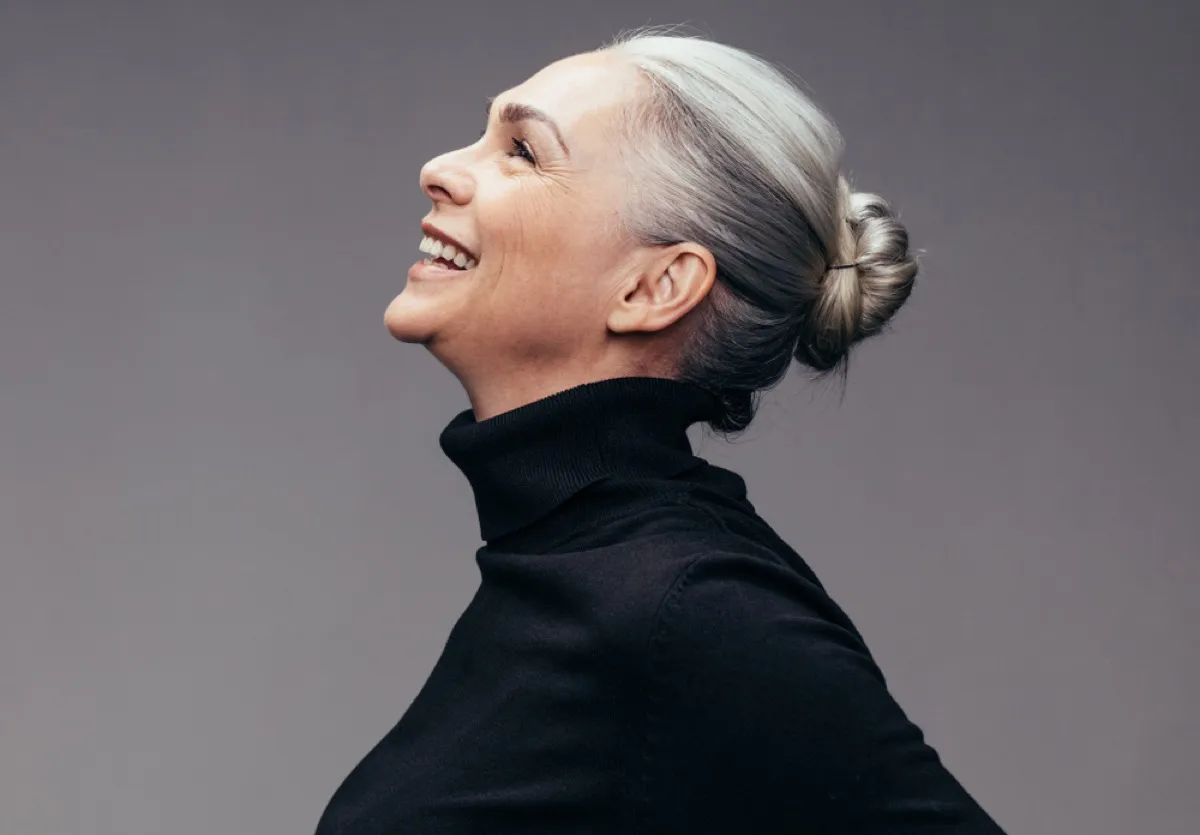
After you've washed, conditioned, toned, and masked your hair, Abdullah has a final piece of advice: let your hair be. "Don't blow dry or use other heat tools too often as it will dry your hair out. Take advantage of the drier texture and increased, coarse volume to let your hair air dry." If you want curls, Abdullah suggests rollers as opposed to heat. And if you need a sophisticated style, try an updo or low chignon. Your hair will get the chance to rest, regain its oils, and avoid heat damage.
